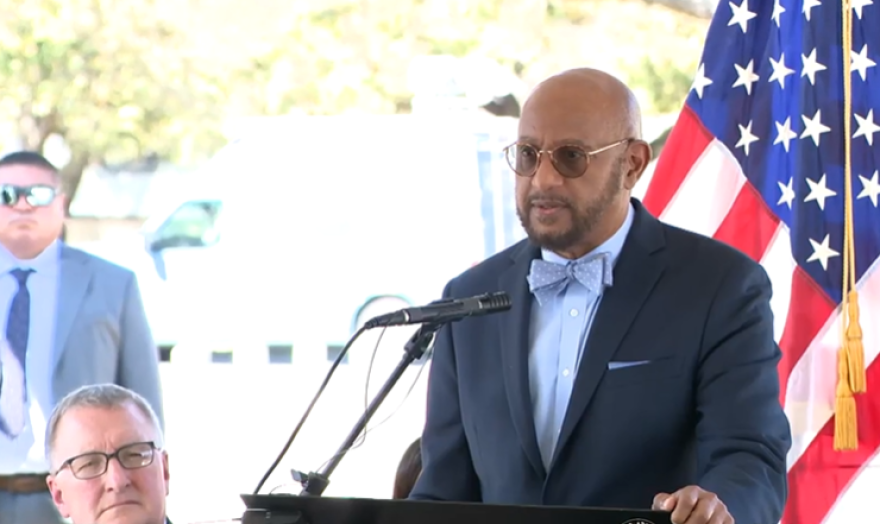The 3rd Battalion 24th Infantry Regiment was a unit of Buffalo Soldiers, Black enlisted men commanded by white officers. In 1917, they arrived in Houston to guard the construction of a new training base. Under Jim Crow, racial tensions in the city were high. The unit was subjected to racist insults and physical harassment from residents and police.
A riot broke out after rumors circulated about the killing of a Black soldier and an approaching white mob. It claimed the lives of four Black soldiers and 15 local residents. Dozens more were wounded.
A military court convicted 110 Black soldiers of mutiny, murder and assault. The trials were marked by irregularities, including a rushed schedule and the appointment of a single officer to defend all the accused. That officer was not an attorney.
Nineteen of the soldiers were executed at Fort Sam Houston and buried in unmarked graves. The remains of 17 of the men were reburied at Fort Sam Houston National Cemetery in 1937. Their graves were inscribed with just their names and dates of death. The remains of two other soldiers were returned to their families by request.
More than a century later, in 2023, Army Secretary Christine Wormuth vacated the soldiers’ convictions and directed that their records reflect honorable discharges.
Now, the VA has provided the soldiers with new headstones that include more information about them, as well as an updated interpretive sign.
“Today, we right the wrongs of the past and honor the service of these soldiers – who served our country with honor,” said VA Under Secretary for Memorial Affairs Matthew Quinn. “We are proud to dedicate new engraved headstones that include these Army soldiers’ ranks, regimental unit, and home states, demonstrating our full commitment to helping correct the injustice of that era.”

“The focus is on restoring dignity, honor and respect to those 17 soldiers and, by extension, the two soldiers who were executed and are buried elsewhere — and the 91 soldiers sent to prison in those same trials,” said Tanya Bradsher, deputy secretary for the Department for Veterans Affairs. “Simply put, today, we state unequivocally that equal justice belongs to all soldiers today and every day. This day, in some small way, reflects the progress we have made as a nation.”
Jason Holt, the nephew of Private First Class Thomas C. Hawkins of the 24th Infantry Regiment, who is interred at Fort Sam Houston National Cemetery, reflected on the loss of his ancestor and the possibility of remedy.
“The ones that are in those graves are not just bodies. They represent hope, dreams, sacrifices, the things that every family makes for their children. That cannot be replaced. Where do you go to get another mother's son?” Holt said.
“As we look back on 107 years and think about what we believe to be a miscarriage of justice, we have to ask ourselves, ‘How did that happen?’ We have to think about the perpetuation of the master-slave relationship and the 13th Amendment,” he said. “That's what brings us here today, that miscarriage of justice. Will what we do here today balance the scales? I'm not sure about that.”



